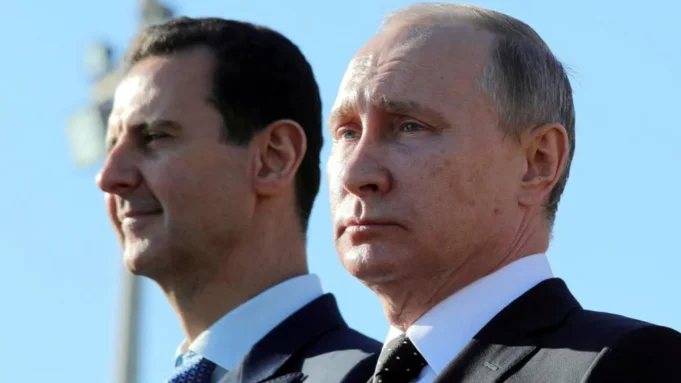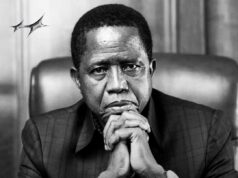It was Russian firepower that had helped keep Bashar al-Assad in power for the last nine years.
But, in a matter of days, the Kremlin’s Syria project has unravelled, with Moscow, apparently, powerless to do anything about it.
In a statement the Russian foreign ministry announced that Assad had left the post of president – and the country (without providing any details about where he’d gone).
It added that Moscow was “following the dramatic events in Syria with extreme concern”.
The fall of the Assad regime is a blow to Russia’s prestige.
By sending thousands of troops to shore up President Assad in 2015, one of Russia’s key objectives had been to assert itself as a global power. It was Vladimir Putin’s first major challenge to the power and dominance of the West, away from the former Soviet space.
And a successful one, too, so it seemed. In 2017, President Putin visited Russia’s Hmeimim air base in Syria and declared that it was mission accomplished. Despite widespread reports that Russian airstrikes were causing civilian casualties, the Russian defence ministry felt confident enough to fly international media out to Syria to witness the Russian military operation.
On one such trip I remember an officer telling me that Russia was in Syria “for the long haul”.
But this was about more than just prestige.
In return for military assistance, the Syrian authorities awarded Russia 49-year leases on the air base in Hmeimim and its naval base in Tartus. Russia had secured an important foothold in the Eastern Mediterranean. The bases became hubs for transferring military contractors in and out of Africa.
A key question for Moscow is: what will happen to these Russian bases now?
In its statement, the Russian foreign ministry announced that its bases in Syria had been put “on a state of high alert”, but claimed there was “no serious threat to them at the current time”.
Assad was Russia’s staunchest ally in the Middle East. The Kremlin had invested heavily in him. It had poured resources – financial, military, political – into keeping him in power. The Russian authorities will struggle to present his toppling as anything but a setback for Moscow.
But in a post on social media, Konstantin Kosachev, deputy speaker of Russia’s upper house of parliament, wrote: “What’s happening in Syria is very difficult for everyone, without exception…a tragedy for everyone.
“For Russians our priority is to ensure the security of our citizens, both civilians, including diplomats and their families, and of course servicemen.”




